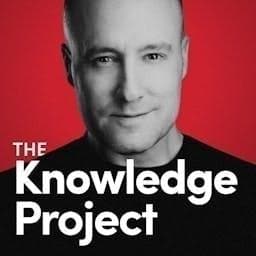As the podcast reaches Episode 100, Monika reflects on how what began as a small experiment has grown into a steady, non-hysterical space for building real financial stability. Over two years, 100 episodes, and hundreds of listener questions, clear patterns have emerged - money decisions are rarely just about numbers. This milestone episode distils the journey into ten core lessons, drawn from real stories and recurring struggles, that show how deeply money is intertwined with relationships, childhood conditioning, fear, social pressure, and the habit of delaying action in search of perfection.
Monika walks through these lessons with honesty and clarity - from why “perfect” is the enemy of “good”, to why getting started matters more than getting it right, and why simple systems often outperform complex strategies. She explains how small, consistent actions compound over time, why automation is the secret sauce of long-term money management, and why there is no single lottery-ticket investment waiting in the future. The episode reinforces a central theme that has run through all 100 conversations: money is not the goal, but an enabler, best managed quietly through systems, discipline, and self-awareness.
In listener messages, Chrisann Jason Pereira writes about how small, steady mutual fund investments over a decade transformed her financial life and helped her family build security; Mukesh Shukla reflects on how these ideas should be foundational education for young adults; Finance ka ABCD highlights the quiet, life-changing impact of financial literacy done right; and Sagar Patil shares how Let’s Talk Money helped him gain confidence, structure his savings, and plan for the long term.
Chapters:
(00:00 – 00:00) Money Is Always About Relationships
(00:00 – 00:00) Your Money Story Begins in Childhood
(00:00 – 00:00) The Core Fears Around Money Are Universal
(00:00 – 00:00) Perfect Is the Enemy of Getting Started
(00:00 – 00:00) Starting Late Is Better Than Not Starting
(00:00 – 00:00) Simple Investing Beats Clever Complexity
(00:00 – 00:00) There Is No Big Lottery Waiting
(00:00 – 00:00) Small Atomic Moves Create Big Outcomes
(00:00 – 00:00) Automation Is the Secret to a Calm Money Life
(00:00 – 00:00) Social Pressure Is the Most Dangerous Risk
(00:00 – 00:00) Listener Messages
If you have financial questions that you’d like answers for, please email us at [email protected]
Monika’s book on basic money management
https://www.monikahalan.com/lets-talk-money-english/
Monika’s book on mutual funds
https://www.monikahalan.com/lets-talk-mutual-funds/
Monika’s workbook on recording your financial life
https://www.monikahalan.com/lets-talk-legacy/
Calculators
https://investor.sebi.gov.in/calculators/index.html
You can find Monika on her social media @monikahalan.
Twitter @MonikaHalan
Instagram @MonikaHalan
Facebook @MonikaHalan
LinkedIn @MonikaHalan
Production House: www.inoutcreatives.com
Production Assistant: Anshika Gogoi
























































